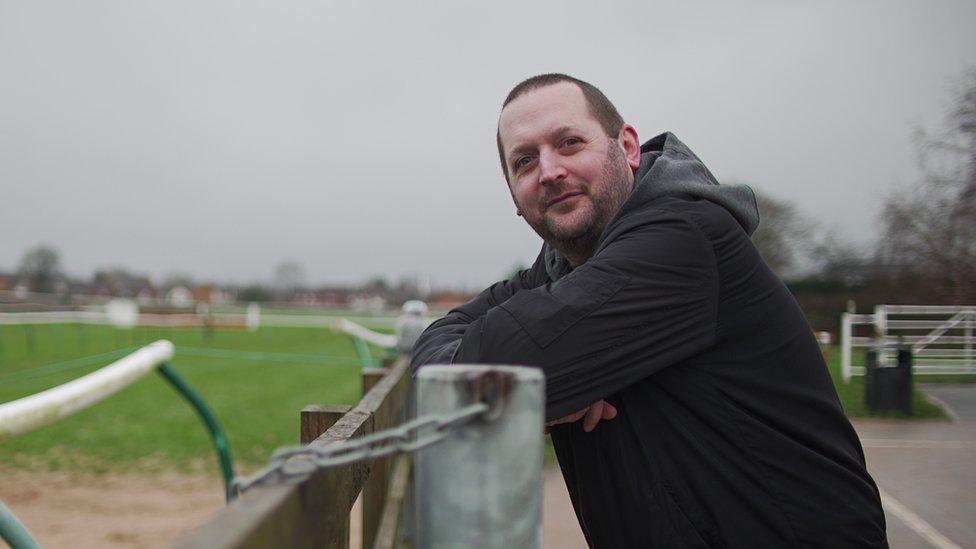Universal credit: £20 cut diabolical, Rhyl recipients say
- Published
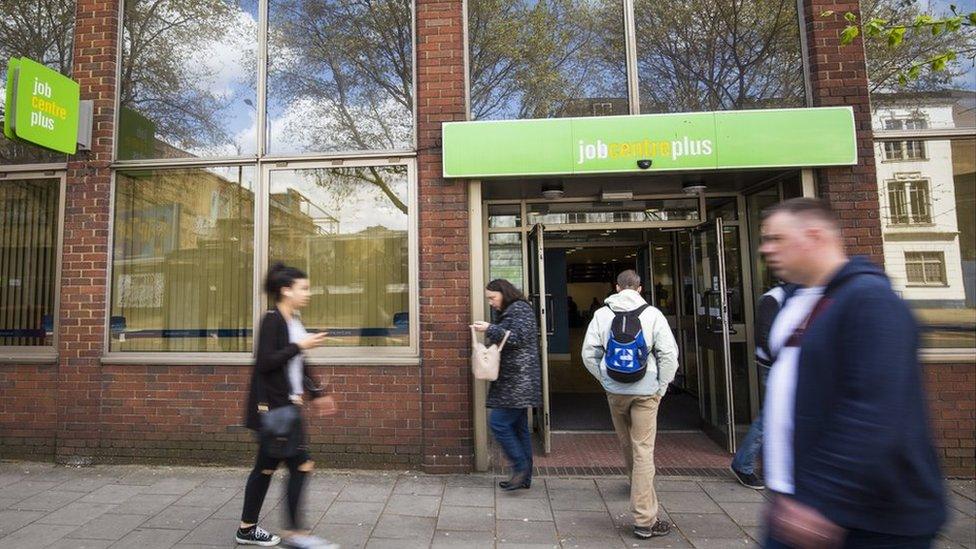
A £20 increase to universal credit has been in place for almost 18 months
A £20 per week cut to universal credit has been branded "diabolical" by those who are set to lose out.
The cash was introduced as a top up to help people during the pandemic, but it is being stopped from next week.
But in one of the most deprived parts of Wales, residents accused the UK government of not understanding what it is like "trying to make your food last from one day to the next".
The UK government said it was focused on getting people into work.
The £20 uplift to universal credit and working tax credits - the benefits working-age people are eligible for - has been in place since March 2020.
Work and pensions secretary, Therese Coffey, who previously backed the cut, said last week stopping the extra cash would only mean "about two hours' extra work, every week" needed for claimants.
However, six former Conservative work and pensions secretaries, including Preseli Pembrokeshire MP Stephen Crabb, have spoken out against the move.
Rhyl, in the Vale of Clwyd constituency, has two of Wales' most deprived neighbourhoods and charity volunteer Donna Evans said the loss of £20 a week would hit her and the community hard.
"It might not sound a lot, but to someone who hasn't got a lot, it's a massive amount," she said.
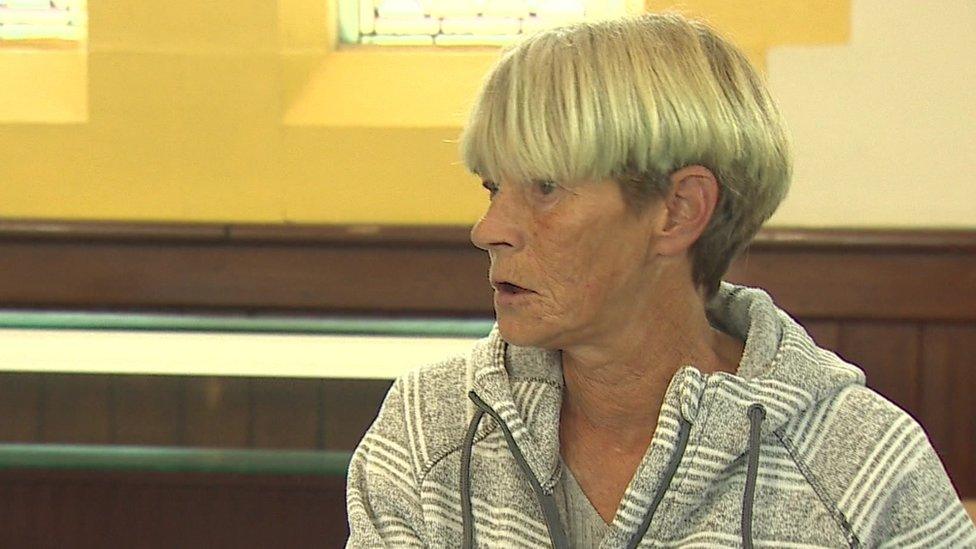
Donna Evans said people need to be able to put food on the table
She started volunteering at the Foryd community centre, which has a foodbank, cafe, social clubs, people who offer help and advice to those in need.
"We'll definitely need this more than anything, especially now the £80 a month is going to go," she said.
"We'll need the shelves filling up quick but they'll empty just as quickly. It's going to be really hard to help everybody."
Ms Evans cares for her grandson and receives universal credit, but said the money did not go far ahead of the cut.
"It's horrible panicking," she added. "You're trying to make your food last from one day to the next day, and then you have to think a week ahead.
"If you don't get any money, and you have the stress of having kids wanting something, needing something."
She described ending the uplift as "cold, it's heartless, it's thoughtless, it's diabolical".
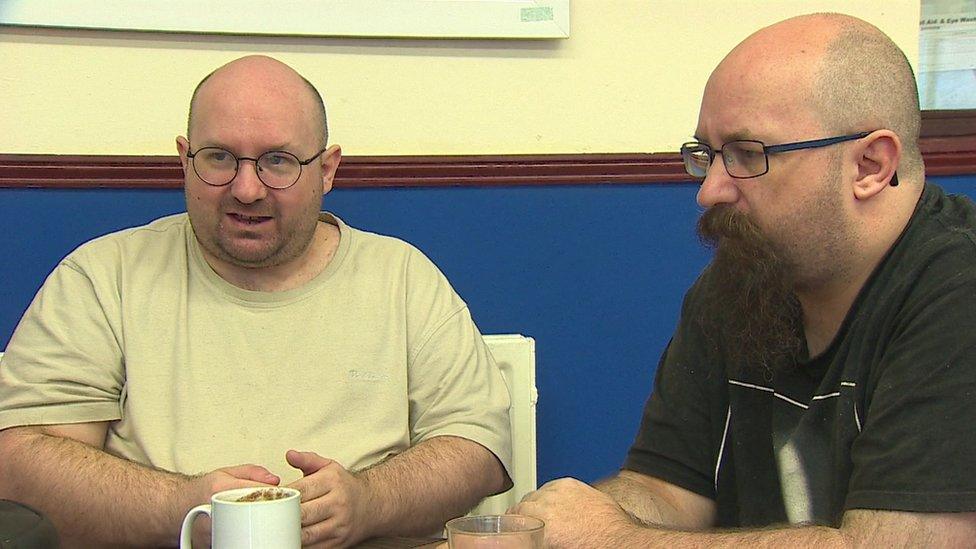
Twins Philip and Michael said they cannot understand the decision to end the uplift
Twins Michael and Phillip agreed.
"Every bit of money we have is gone before we've even spent it," said Michael.
Phillip added: "I cannot understand the government's decision when they're not living like this.
"They've not been given a budget like this to live on."
About 40% of people receiving universal credit have jobs, while the others are trying to find work, or are unable to work.
Wages in Wales are lower than the UK average, while inflation in the cost of goods has been driven up by food and energy prices to the highest rate since 2012.
Council tax and National Insurance are also set to rise.
Which areas will be hardest hit?
Citizens Advice Cymru said it was expecting a "sharp uplift" in people struggling once the extra benefits are cut, having helped 15,700 people with their credit claims in the past six months.
Research by Bevan Foundation found eight areas where a quarter of households will suffer, with the figure higher among those with children.
The UK government said it was focused on getting people into work.
Areas identified by the foundation's research include Merthyr Tydfil and Rhymney, Torfaen, Newport East, Rhondda, Swansea East and the Vale of Clwyd parliamentary constituencies.
In families with children, the numbers hit by the change reach 42% but in Rhondda and Cardiff South and Penarth it is half of all families.
The research predicted the policy change would affect pandemic recovery as people tend to spend their universal credit on high streets, meaning £286m could be taken out of the Welsh economy.
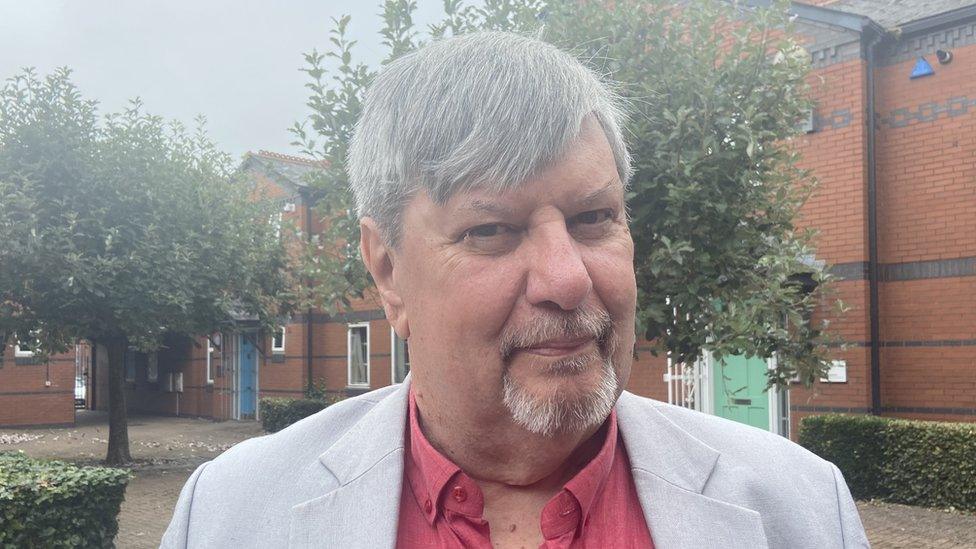
Benefits expert Gareth Morgan rejected claims that those on universal credit could cover the loss with two extra hours of work
An expert whose company delivers training for the Welsh government on benefits rejected the claim about two hours extra work, saying that would only apply for a "tiny minority".
Gareth Morgan said: "You would have rather hoped that the secretary of state for work and pensions might have understood how the benefits system worked, and the way in which when you give people extra by way of earnings, the government takes a lot of it back again by tax, National Insurance and by reducing the amount of in-work benefits they're entitled to."
The Department for Work and Pensions said the £20 uplift "was always temporary".
A spokesman added: "It was designed to help claimants through the economic shock and financial disruption of the toughest stages of the pandemic, and it has done so.
"It's right that the government should focus on our plan for jobs, supporting people back into work and supporting those already employed to progress and earn more."

MOTHERS, MISSILES AND THE AMERICAN PRESIDENT: The story of Greenham told like never before
FIERCE AND FABULOUS: Hayley Goes... exploring the issues of her generation in a brand new series

- Published13 May 2024

- Published11 September 2021

- Published13 January 2021
